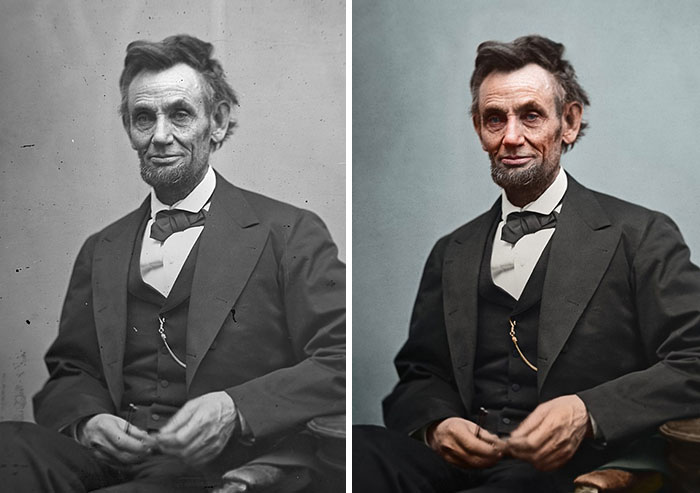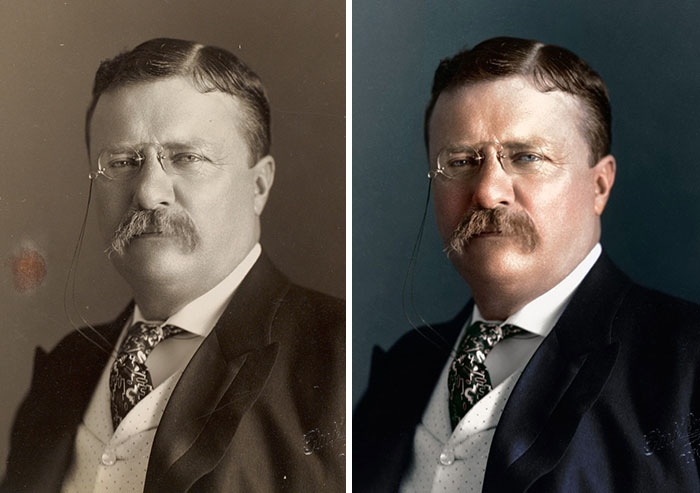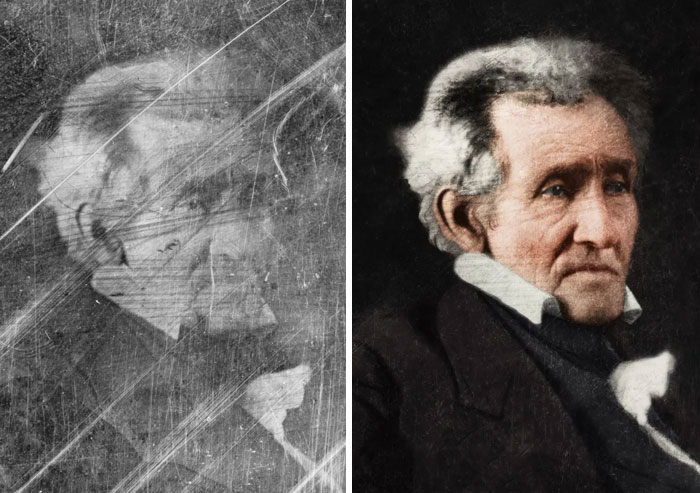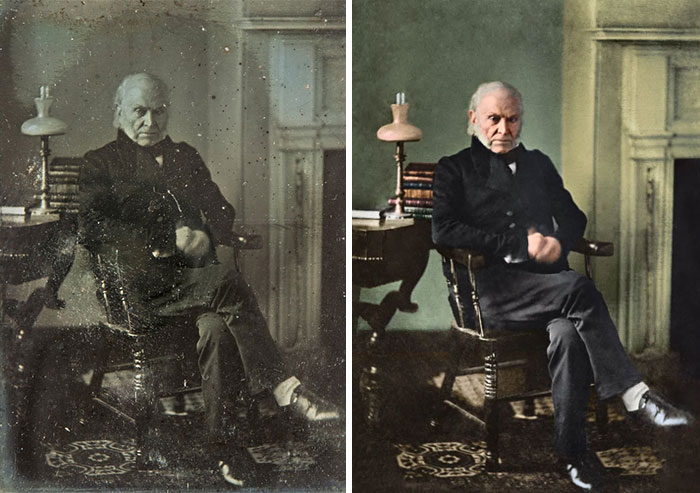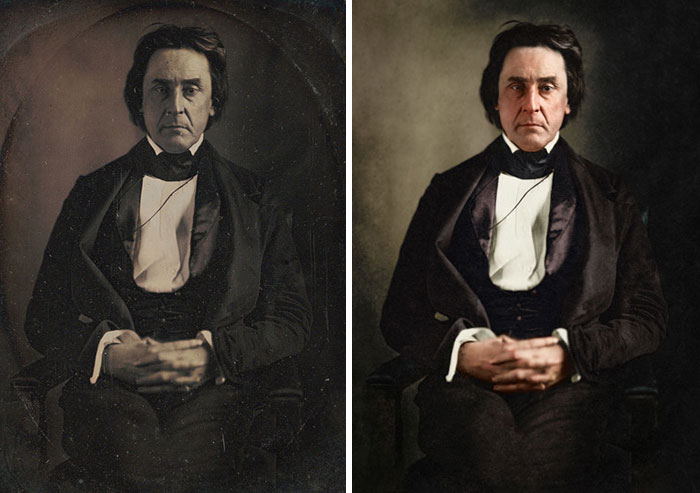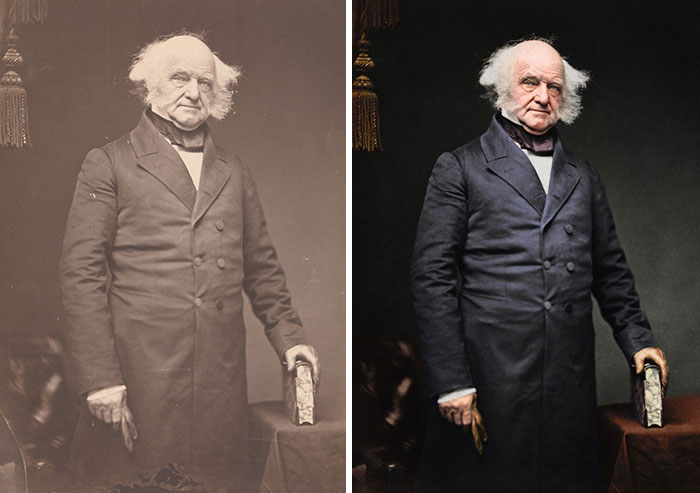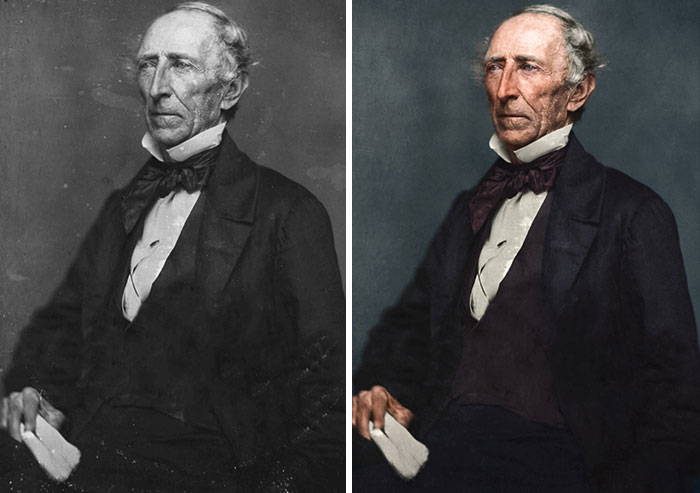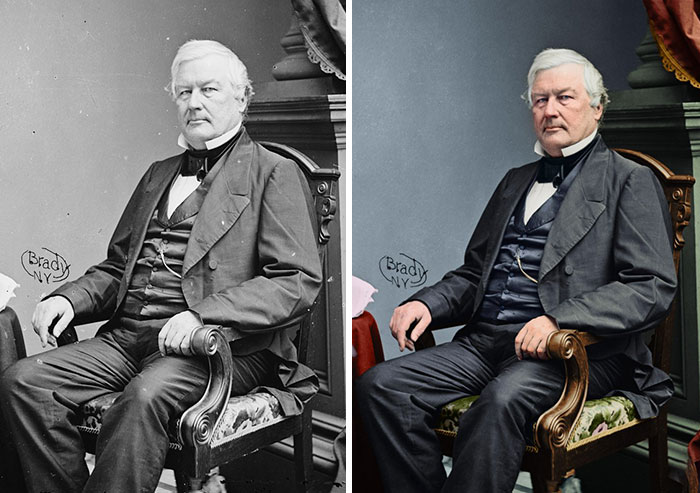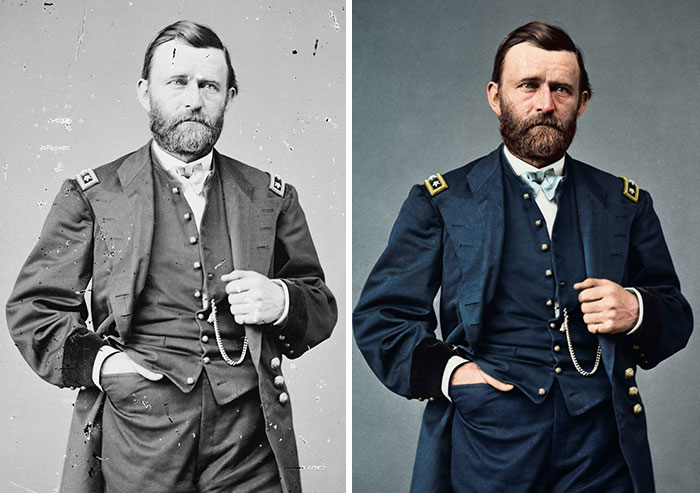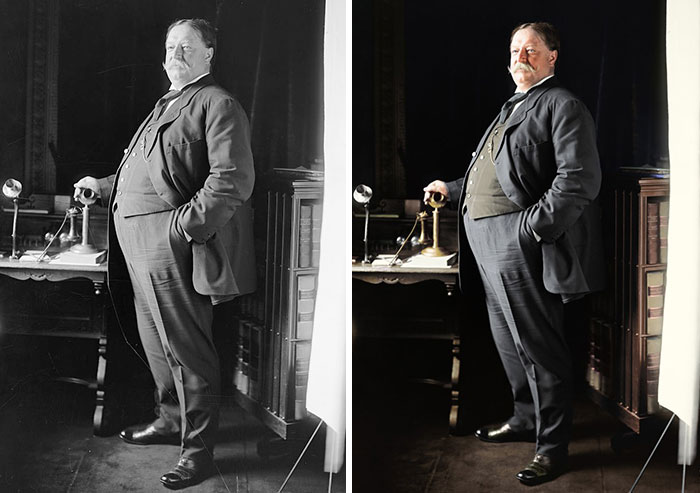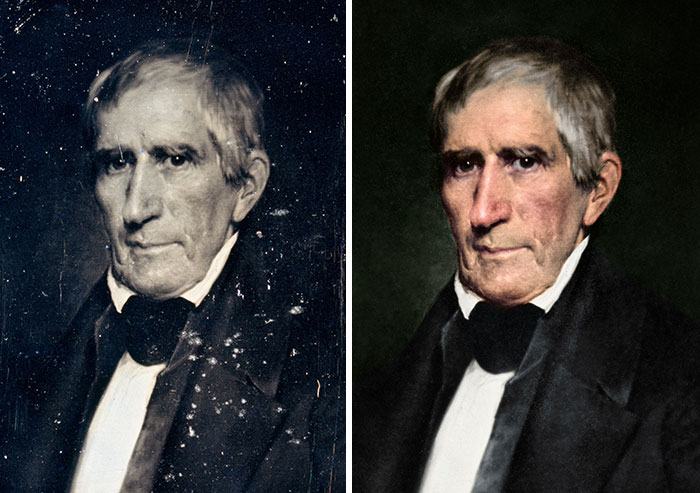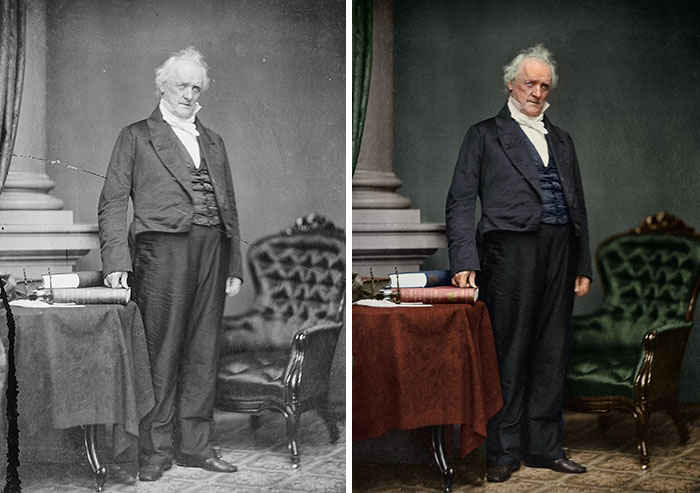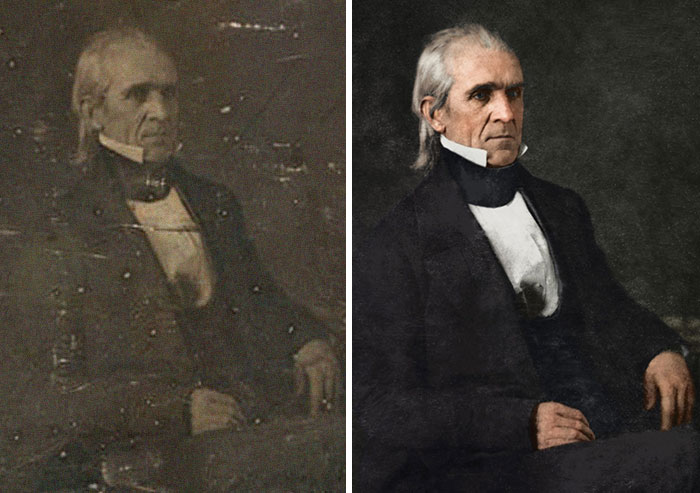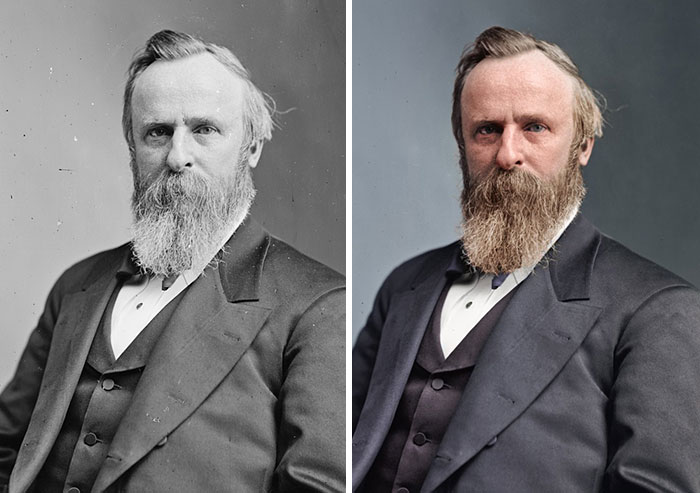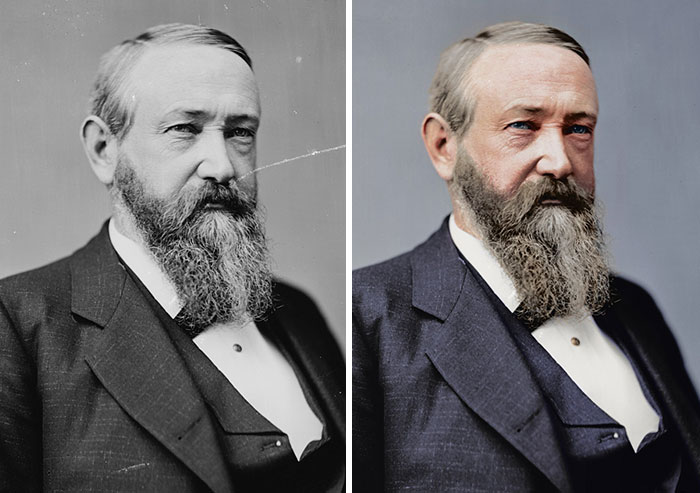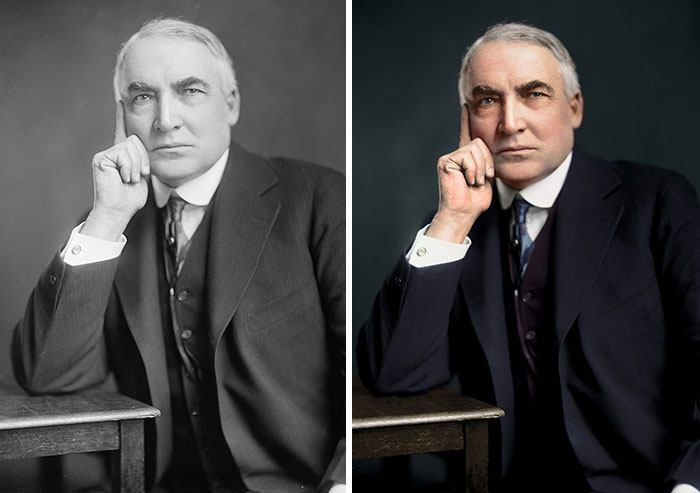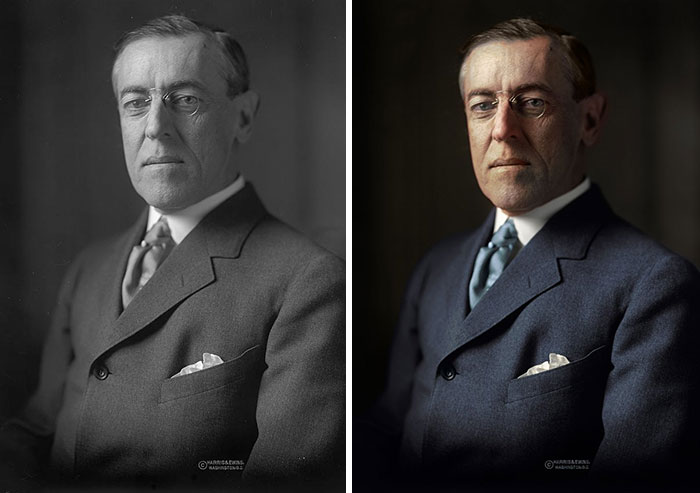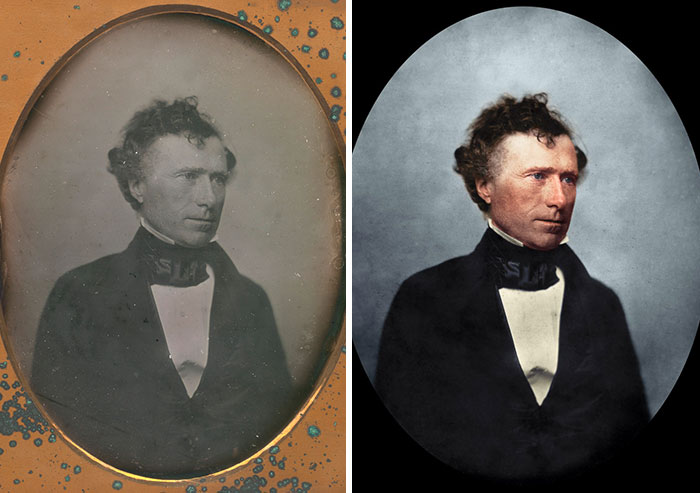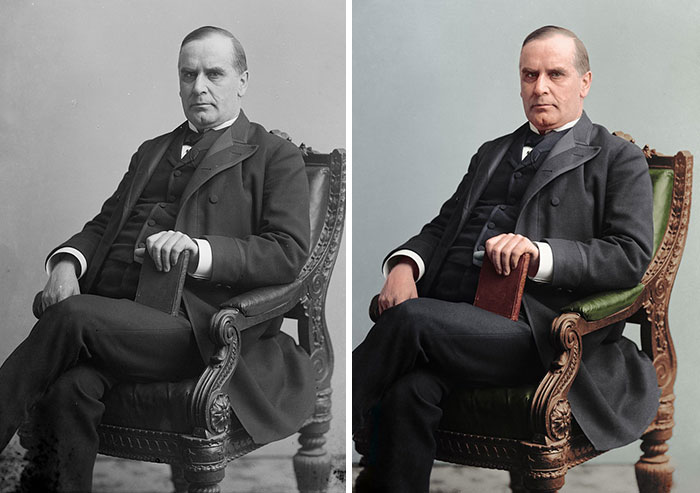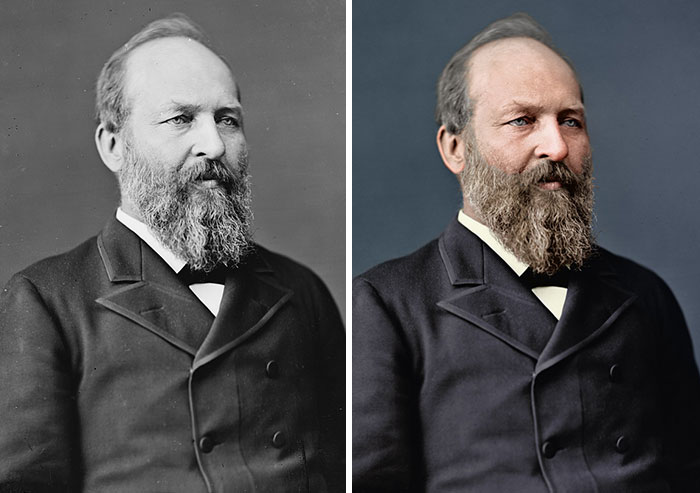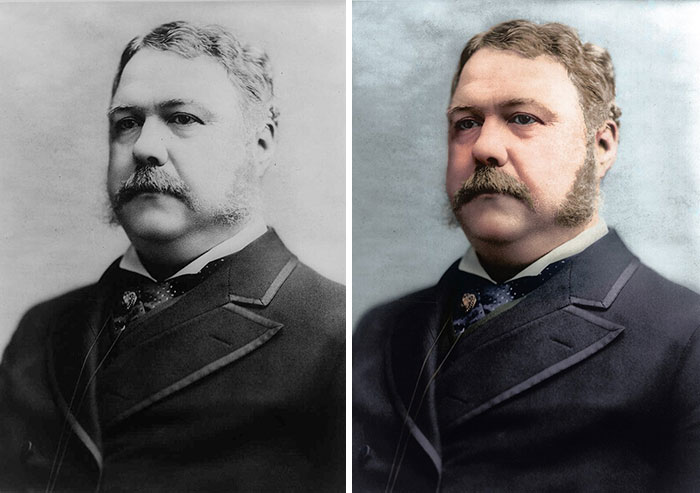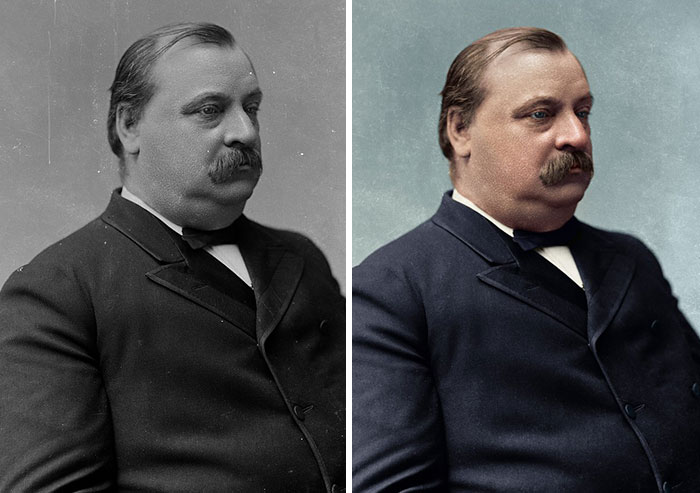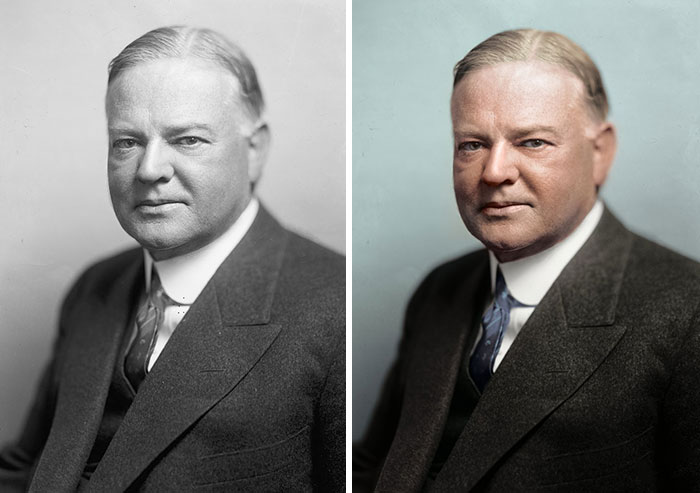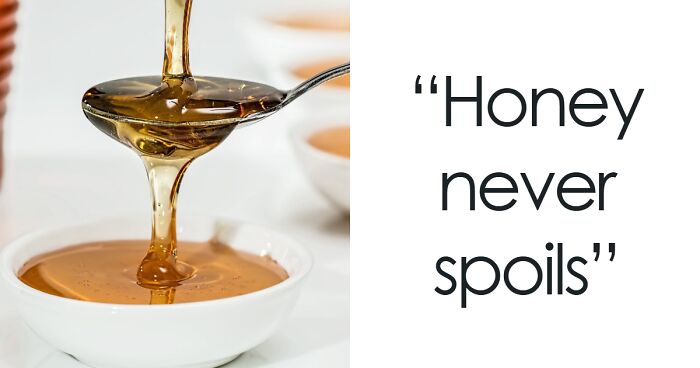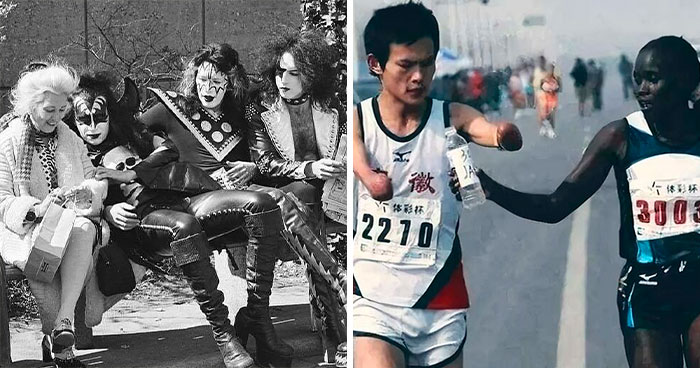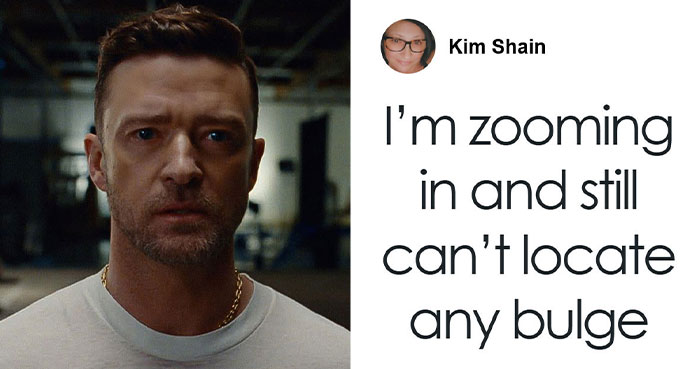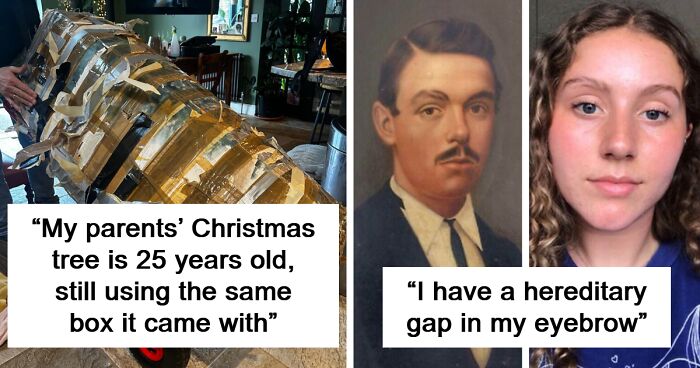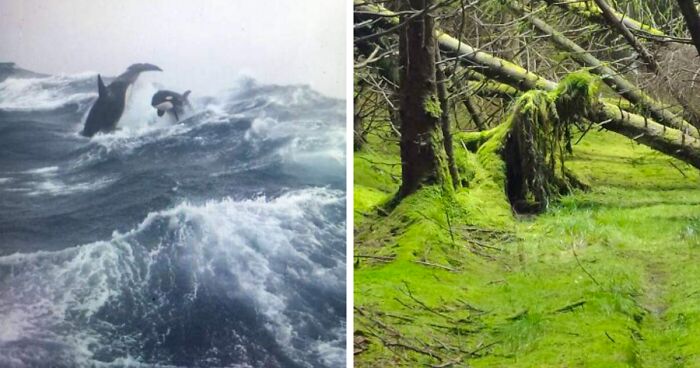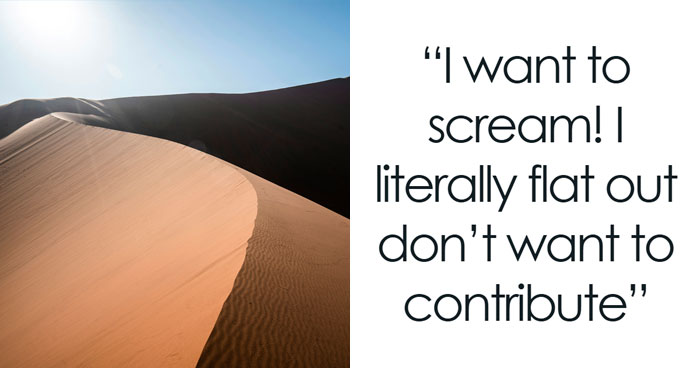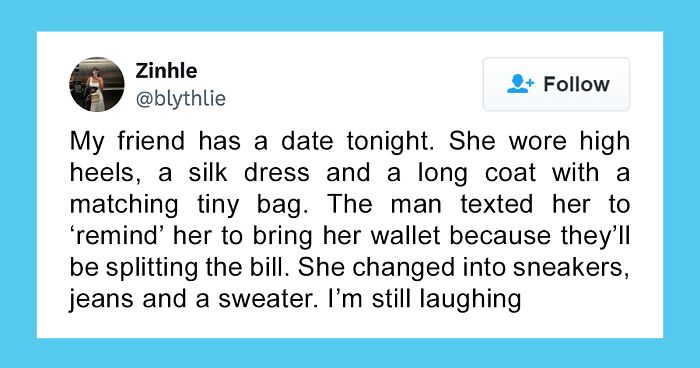
Artist Breathes New Life Into Photos Of US Presidents Who Lived Before Color Photography (26 Pics)
Photos often shape the way we look at people we don't know. But if a person died a long time ago and the only remaining portraits of them are damaged black-and-whites, we might not get the full picture of their presence. That's where restorers and colorists come in. They bring to life the damaged and grey images, allowing us to see their subjects in a new light.
James Berridge is one of them and he's doing one heck of a job. Recently, he released a project that had been in the making for quite some time and really highlights his skills.
Towards the end of last year, Berridge received a request to work on an image of Abraham Lincoln. After he was done, Berridge posted the completed, full-color image of Lincoln online and was really surprised by the response it received. The comments in particular really caught him off guard. Multiple people were praising him saying, "I've never really been able to see Abraham Lincoln as an actual person before now."
The positive reaction to the picture of Lincoln led to his decision to not just work on coloring another president but to work on coloring every president who only lived in black and white. 100 hours or so later, this is what he ended up with.
More info: Facebook | Instagram | YouTube | Twitter
This post may include affiliate links.
Abraham Lincoln, 16th President 1861-1865
This portrait was taken in February, just a few months before the end of the American Civil War and that fateful night at Ford’s Theatre. Despite being a relatively plainly dressed individual, Lincoln viewed his heavy gold watch as a sign of his success as a lawyer and wanted it to be on clear display to people.
His watch also contained a secret message, a message so secret that even Lincoln was likely unaware of it.
In 1861, the pictured watch was being repaired by a Jonathon Dillon. Dillon was interrupted mid repair with the news that the civil war had begun. Dillon quickly etched a message inside, which was as followed: “Jonathan Dillon April 13-1861. Fort Sumpter was attacked by the rebels on the above date J Dillon April 13-1861 Washington. thank God we have a government Jonth Dillon.” This secret message was not commonly known about until 2009, when a relatively of Dillon contacted the Smithsonian with the family legend of the hidden message.
"I first became interested in colorization upon seeing Marina Amaral's amazing work in this field," Berridge told Bored Panda. "I think, like a lot of people, my initial opinion towards colorization had been rather soured from seeing lurid colorization attempts sadly made to old black and white movies. However, with Amaral's work, I could really see the benefits which a respectful colorization could bring to a picture, adding life to history in a way which could also add artistic, entertainment, and educational value."
But Berridge's own journey into colorization started entirely as an afterthought. "Just over 2 years ago, I was trying to restore an incredibly damaged [Japanese Policeman] picture for my Photoshop portfolio. Having restored it, I decided that I might as well give coloring it a go. I thought that would be an interesting additional challenge for myself and something else to put in my portfolio."
Theodore Roosevelt, 26th President 1901-1909
Theodore Roosevelt died at the age of 60, in his sleep. The Vice President at the time, Thomas R. Marshall summed up his death, and his life, as follows, “Death had to take Roosevelt sleeping, for if he had been awake, there would have been a fight.” Roosevelt was a government minister, the Assistant Secretary of the Navy, when the Spanish-American War broke out in 1898. Roosevelt resigned from the government and insisted on going to fight on the front lines as a volunteer. Roosevelt’s national reputation would be secured after the Battle of Kettle Hill, where he personally led his troops to victory trough heavy gunfire and barbed wire.
Upon the assassination of William McKinley, Roosevelt became the youngest President in history at the age of 42.
Berridge has never really been someone who finds it easy to relax but when colorizing a picture, he's able to zone out and the hours just fly by. He said that's probably what he enjoys most during the whole process. "I've never been fishing but I imagine it's the same emotional experience," he explained. "With colorization, it's just you and the picture and however many hours of work it needs before you can say it's completed. I've worked on pictures which required over 20 hours of work before now so if I didn't enjoy the process, I'd certainly be in trouble!"
Everything begins with finding the right image. To Berridge, at least, and that's most of the battle. "Generally speaking, I look for fairly flat images with a lot of potential dynamic range and avoid those with very dynamic shadows and highlights," he said. "This also has the added advantage of generally avoiding using images where the clear artistic intent was for the image to be presented in black and white."
Andrew Jackson, 7th President 1829-1837
"I then work to adjust the contrast to bring out as much detail and depth in the image as possible, before working to remove any scratches or other damage which has occurred to the image over time. The colorization itself is usually fairly straightforward, with the most challenging part being the search for accurate color reference sources. For my first colorization, I had to spend multiple hours trying to establish what color uniforms Japanese policemen had in the early 20th century for example."
John Quincy Adams, 6th President 1825-1829
Not sure why this concrete photo is missing any explanatory text, because it is in fact the most interesting one in this gallery. This daguerreotype was taken in a Washington portrait studio in March 1843, when Adams was in the middle of his post-presidential career in Congress. It is the oldest known photo of any US president.
"Aside from research sometimes being tough, the only other particularly difficult part of the process is how terrible a picture usually looks up until it's maybe 90% finished," Berridge added. In fact, he can spend many hours working on an image and still really not know how good the image will finally look until the last few tweaks to the lighting. Imagine how much you have to trust the process in order to work under such uncertainty.
"Experience has taught me to keep going through those times of self-doubt as some of my favorite colorizations have come from images which I almost abandoned mid-process," Berridge said. "I'd really recommend people give colorization a go for themselves. So many parts of the process have enriched my life in ways I never expected and I’d love other people to join me in this journey."
David Rice Atchison (1849)
So in short, there was a brief amount of time, maximum of a day, between when the 11th President James K Polk stood down and the 12th elected President Zachary Taylor took the inaugurational pledge. This was due to Taylor refusing to take the pledge on the Sabbath day of religious rest.
So for this short amount of time it’s not as clear as it could be who was actually President. For some, it was David Rice Atchison who was potentially the President Pro Tempore at time. (Making him third in line after the Vice President) Although this is hotly debated and most historians believe it was still Zachary Taylor, even if Taylor may not have wanted it to be!
Martin Van Buren, 8th President 1837-1841
The first things which always leap to mind about Van Buren were that he was the first President to be born as an American, rather than as a colonial British, citizen. The other is that he was born to Dutch parents in New York and raised with English as his second language.
Adding to the war of 1812, the war of 1838 could have very easily been a thing had it not been for Van Buren’s diplomatic abilities. When a faction of British citizens in Canada decided to rebel against the Government they were initially defeated, fleeing into Northern America and establishing the ‘Republic of Canada’ with help from sympathetic American citizens.
John Tyler, 10th President 1841-1845
Fun fact: this man still have two living grandkids. That's right, not great or great great grand kids. GRANDKIDS!
Millard Fillmore, 13th President 1850-1853
Ulysses S. Grant, 18th President 1869-1877
Ulysses S. Grant is probably one of the few people for whom being President of the United States would be their second most notable role in life. Grant fought in the Mexican-American War and later in the Civil War where he would quickly raise up the ranks to General and eventually end up leading the Union Armies on behalf of President Lincoln.
Contrary to common lore Grant was not a heavy drinker. Very little alcohol made him appear very intoxicated so he tended to abstain as he grew older. He did chain smoke cigars though.
William Howard Taft, 27th President 1909-1913
So William Howard Taft was both President of the United States and later Chief Justice of the Supreme Court. Unfortunately, he’s mostly remembered for getting trapped in a bathtub, and that may not have even happened.
So ‘Big Bill’ as he was nicknamed by the press of the time, was 5ft,11” and during his Presidency he weighed around 340lbs, or 154Kg.
William Henry Harrison, 9th President 1841 - Died After 31 Days Of Pneumonia
This is my close great great great great great (idk how many greats, not good with time) Grandfather
James Buchanan, 15th President 1857-1861
So James Buchanan is frequently viewed as one of America’s worst Presidents. In the over 230 years of people holding the office of Presidency, his single term of 4 years in the job is not viewed favourably by many.
This is broadly due to the Civil War breaking out within weeks of his leaving office. His Presidential actions or his lack thereof, are viewed as causing it to happen.
James K. Polk, 11th President 1845-1849
Zachary Taylor, 12th President 1849-1850
Rutherford B. Hayes, 19th President 1877-1881
Calvin Coolidge, 30th President 1923-1929
Calvin Coolidge seems to be quite politically incongruent when you compare his apparent political nature and the policies which he actually pursued.
Despite his ruthlessness on occasion, it would seem that Coolidge always had one eye on protecting the American people, regardless of their background.
he enjoyed having his head rubbed with vaseline, which explains the slick do
Benjamin Harrison, 23rd President 1889-1893
This is also my Great great great great great (stll idk how many greats) Grandfathers, Grandson. This dude was how i got my middle name. Benjiman
Warren G. Harding, 29th President 1921-1923
Warren G. Harding’s Presidency was initially viewed quite favourably by the public. He worked to secure peace with other nations and he began the large scale investment in the American highway system. Harding also fought hard to improve the working conditions for many Americans, particularly steel workers.
But then, the Teapot Dome scandal and his sexual scandal evolved.
Andrew Johnson, 17th President 1865-1869
Woodrow Wilson, 28th President 1913-1921
Franklin Pierce, 14th President 1853-1857
William Mckinley, 25th President 1897-1901
His legacy was great because of the Spanish American war and he kept thr nation on the gold standard. It's such as shame that his legacy was overshadowed by Teddy Roosevelt.
James A. Garfield, 20th President 1881
Chester A. Arthur, 21st President 1881-1885
Grover Cleveland, 22nd And 24th President 1885-1889
"Grover Cleveland called; he wants his watch back. He left two non-consecutive messages." 04x03-Legs...b274d8.jpg 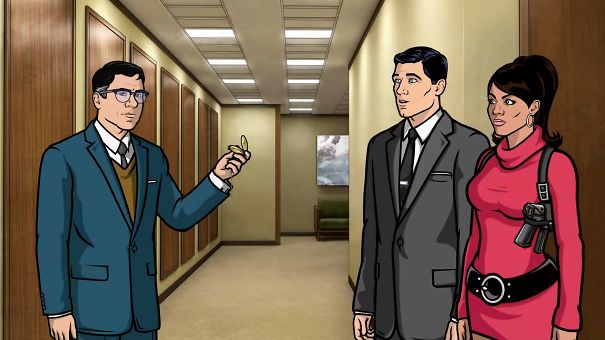
Herbert Hoover, 31st President 1929-1933
The only president to suck so much they named a vacuum cleaner after him

 Dark Mode
Dark Mode 

 No fees, cancel anytime
No fees, cancel anytime 


